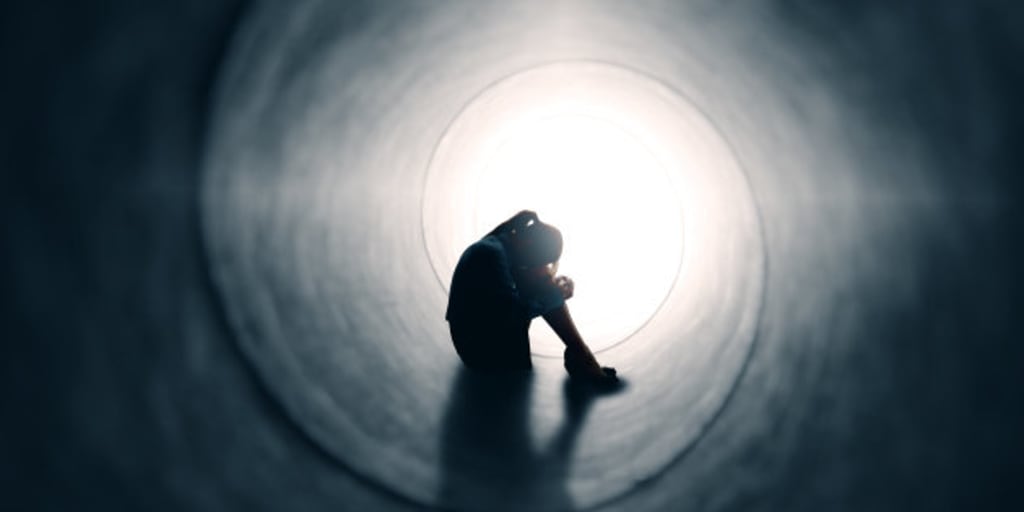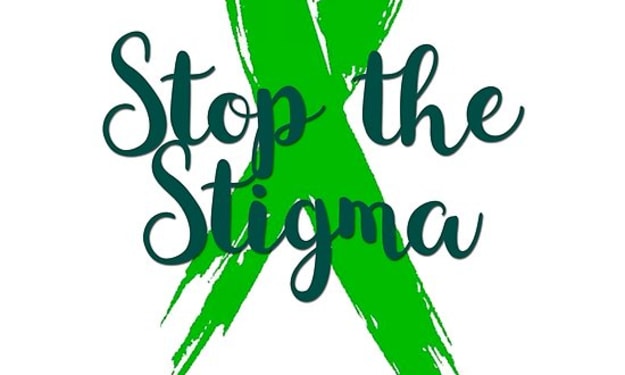The Most Common Mental Illnesses
Depression and Anxiety

It has been said that one in four people suffer from a mental illness. The majority of those people suffer from either anxiety or depression and, very often, both. They are like those friends who are always together. Previously I talked about the stigma around mental illness. I mentioned that depression and anxiety are the two that have the least amount of stigma. This is not only due to how common they are, but also due to the fact that they are based around normal emotions that get out of hand. Depression and anxiety can ruin people’s lives. It’s not like just feeling depressed or anxious. These illnesses can control a persons life and often the feelings that seem normal are amplified by the illness.
I won’t be discussing the facts surrounding each illness. There are so many places you can go to for that. I will be discussing briefly what these illnesses are, but for the most part, I will be discussing what it is like to live with them. The key to ending stigma is education.
Anxiety

Anxiety is, at the roots, the occurrence of excessive worry. Worry leads to stress which can lead to lack of sleep, constant fatigue and in some cases, isolation. Due to these products of anxiety, depression can often follow. There are many types of anxiety, from social anxiety to separation anxiety. There are numerous types, which means that even if someone is comfortable in social situations, they could still be dealing with anxiety. The positive part of anxiety as well as depression is that they can be cured. They don’t have to be a lifelong illnesses, though they can be. There are many treatments, but it is largely dependent on your coping methods.
When I entered high school, I had already been suffering from depression for a year. It took till my senior year to manage to get diagnosed. It may seem simple, just visit a doctor, but it can be more complicated than that. I had to deal with parents that didn’t believe mental illness existed which is part of the stigma. When I was finally diagnosed, they said I had depression along with both social anxiety and separation anxiety. Both are still with me to this day. I personally don’t have to deal with anxiety attacks or many of the other severe problems that can come with anxiety, but one of my closest friends does. She describes it as not being able to breathe. She can’t think straight and this often leads to inappropriate behaviour. This is only her personal experience and anxiety attacks can vary severely. An anxiety attack nearly ruined my wedding when she began to speak negatively of me and say that she didn’t even know why she was one of my bridesmaids. Later she told me that she had been having an anxiety attack and couldn’t think straight. She said that was how she coped. That is an example of a negative coping strategy.
Overall, anxiety can make people do irrational things, and they often fear things they know they shouldn’t. Don’t judge people for these actions. It is a part of their illness that they can’t control. Your judgment may only reinforce their fears and become an obstacle in their healing process.
Depression

Isn’t this everyone’s favourite topic? But jokes aside, even though depression isn’t as common as anxiety, it is still fairly common and can destroy someone’s life. Depression comes from an amplified feeling of sadness that lasts longer than typical sadness. That is what it is at the core, but depression comes with various other friends. Depression can be numbness, as if you’re feeling nothing at all. Depression can be crushing sadness. It can be overwhelming feelings of irrational guilt. It drags along fatigue, insomnia or hypersomia, a loss or gain in appetite. Depression is more complex than just sadness. Depression usually lasts at least two weeks, but can stretch on for much longer. Just because you feel depressed sometimes does not mean you have depression. Doctors usually classify it as depression when those feelings begin to interfere with your life.
As I mentioned earlier, I was also diagnosed with depression. It was genetic in my case. But I have met people that had a point in their life that caused their depression. There are many causes or triggers. Depression is an isolating illness. No one can truly understand what you’re going through. Even friends that also suffer from depression can’t understand. There are so many causes and symptoms that can vary a great deal. Your experiences can make your depression so different from others. It is unique in all cases.
For me, depression makes everything seem impossible or simply not worth the effort. It can prevent me from writing, which is my passion. It plays with my memory and makes me forget things that happened just a few minutes ago. Many people with depression experience this. The loss of memory is caused by the hypo-campus (the memory region of your brain) shrinking. That’s right, studies have shown that depression actually causes the memory region in the brain to shrink. The longer a person is depressed, the smaller it becomes. This can be reversed with time.
Depression may seem like it’s just sadness, but it is so much more. A lot of people don’t feel comfortable discussing their depression, so remember to be kind. You never know what people are going through.
We are not our illness.
We are people.






Comments
There are no comments for this story
Be the first to respond and start the conversation.